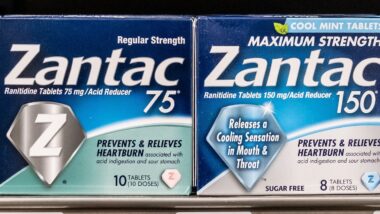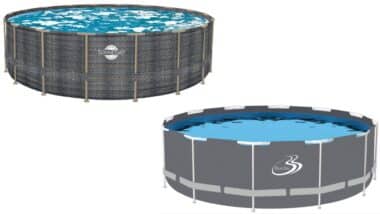
Medication class action lawsuits overview:
- Who: Class action lawsuits involving Sanofi-Aventis U.S., GSK Consumer Health Inc., Procter & Gamble and Walgreens have recently been in the news.
- Why: The complaints have been filed over claims revolving around false advertising of over-the-counter medicinal products.
- Where: The complaints affect consumers nationwide.
Class action lawsuits have recently been in the news or filed against companies accused of falsely advertising the effects of over-the-counter medication.
Cortizone-10 hydrocortisone cream falsely marketed as maximum strength, class action alleges
A consumer filed a class action lawsuit against Sanofi-Aventis U.S. last month over claims the company sold a 1% cortisone cream marketed as maximum strength hydrocortisone, despite competing products containing 3% Cortizone-10.
The consumer behind the complaint argues she was disappointed after purchasing the product and finding it did not actually contain the maximum strength of hydrocortisone available in the marketplace.
“Consumers, including Plaintiff, lack the scientific knowledge necessary to determine whether the Products are “Maximum Strength” hydrocortisone products or to ascertain the true nature of the quality or strength of the Products,” the Cortizone-10 class action states.
Theraflu Emergen-C convenience packs allegedly not actually effective at treating cold, flu symptoms
A consumer filed a class action lawsuit against GSK Consumer Health Inc. last month, arguing the company misleadingly labels its Theraflu Emergen-C convenience packs to deceive customers into thinking they are effective at curing cold and flu symptoms.
The consumer claims the Theraflu Emergen-C packs, in reality, note in fine print on their back label that they have not been evaluated by the U.S. Food and Drug Administration (FDA), and that they are “not intended to diagnose, treat, cure or prevent any disease.”
“By selling a proven cough and cold treatment with a vitamin c supplement touted as having immune benefits from its high amounts of vitamin C, consumers are misled as to its efficacy in treating symptoms of coughs and colds,” the Theraflu class action lawsuit says.
Vicks Honey Lemon Chill lozenges don’t actually contain lemon or honey, class action claims
Also last month, a group of consumers urged a New York federal court to keep alive a class action lawsuit accusing Procter & Gamble Co. (P&G) of misrepresenting that its Vicks Honey Lemon Chill lozenges contain lemon and honey.
The consumers argue the lozenges contain only a negligible amount of lemon and honey, and that P&G is misrepresenting the effectiveness of the product by labeling that they are “fast” and “quick.”
P&G is also accused of misleadingly labeling the Vicks Honey Lemon Chill lozenges as “Max Strength,” despite there allegedly being no scientific indication that the amount of menthol each drop contains increases its strength.
Judge declines to dismiss most claims Walgreens fraudulently marketed generic children’s cough medicine
A federal judge in California last month declined to dismiss the majority of claims in a class action lawsuit filed against Walgreens over allegations the company fraudulently marketed a generic children’s cough medicine.
Consumers argue Walgreens misrepresented the cough syrup product as being only for children when, in reality, it is the same version of a cough syrup the company markets for adults.
“The truth is that the Children’s Cough DM product has the same formula and ingredients as the Adult’s Cough DM product,” the Walgreens lawsuit states.
The judge overseeing the class action lawsuit did dismiss with prejudice claims of negligent misrepresentation while ruling the claims preclude certain claims made solely for economic damages.
Cipla recalls six batches of albuterol inhalers over concerns they could leak
In other news, Cipla announced a recall earlier this month for six batches of its albuterol inhalers over concerns the products could leak, resulting in not enough albuterol being administered per dose.
The FDA published the recall July 6. It applies to six batches of Albuterol sulfate inhalation aerosol, 90 mcg, that was manufactured in November 2021.
Cipla said no adverse events have been reported in connection with the recall, but it decided to initiate the recall after it received a complaint about a consumer who observed a leak in the inhaler valve of their Albuterol inhaler.
Consumers who own the recalled albuterol inhalers are instructed to immediately stop using them and either return them to their place of purchase or discard them.
While the company is not facing any legal action over the recall, Top Class Actions follows recalls closely, as they can sometimes lead to class action lawsuits.
Have you been affected by a class action lawsuit revolving around a medicinal product? Let us know in the comments.
Don’t Miss Out!
Check out our list of Class Action Lawsuits and Class Action Settlements you may qualify to join!
Read About More Class Action Lawsuits & Class Action Settlements:
- Bayer files $12M lawsuit against former supplier over benzene contamination
- Patients who received faulty Exactech knee and hip devices can seek compensation
- Amazon, Theragun file lawsuit against counterfeit massage devices on platform
- Theraflu class action claims Emergen-C convenience pack misleads consumers















29 thoughts onMedication class action lawsuits target companies for alleged false advertising
Add me
Add me
Please Add me
I have used two of the products including the albuterol inhaler
I have used all these products
Please add me.
we quit using the Vicks and the Emergen C because they didn’t work. Now I know why